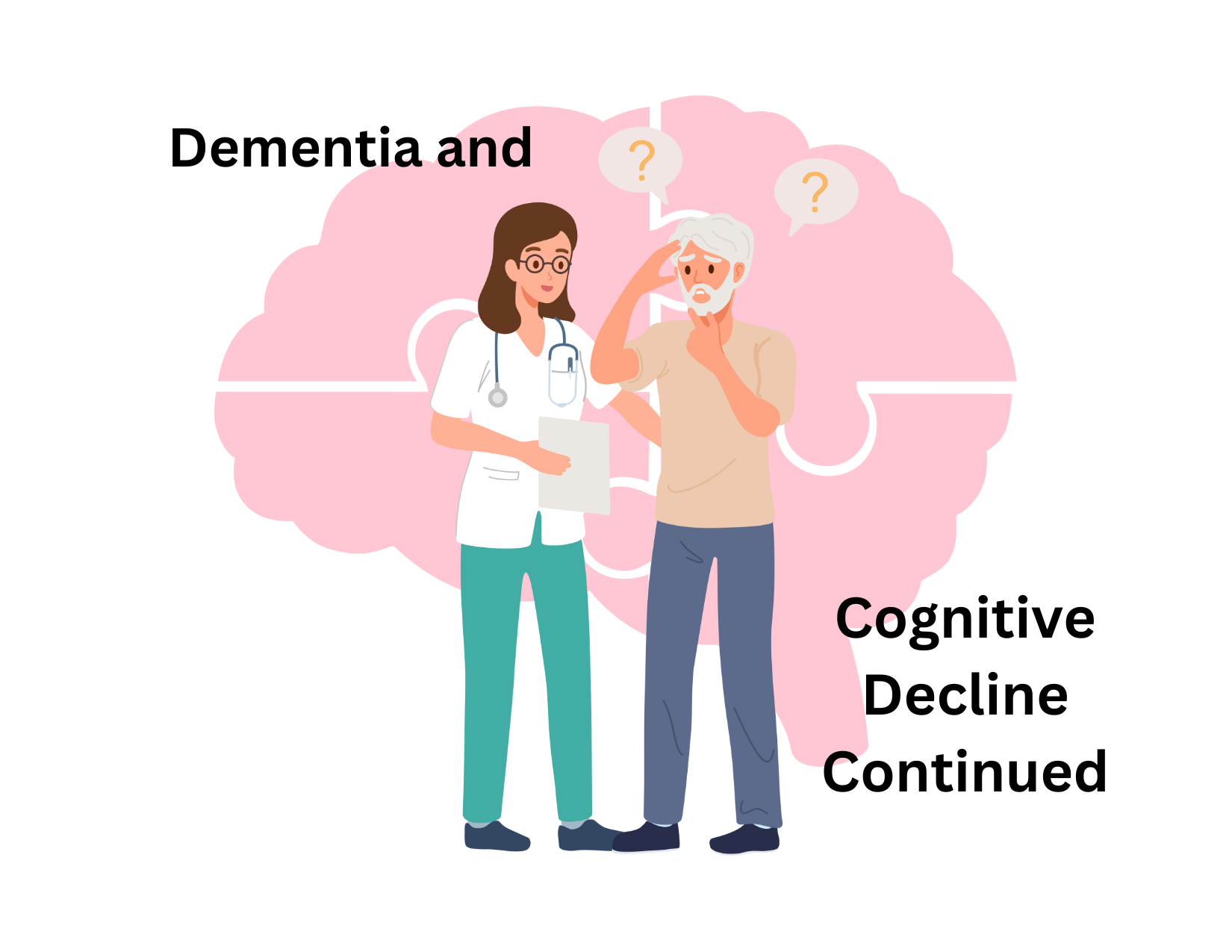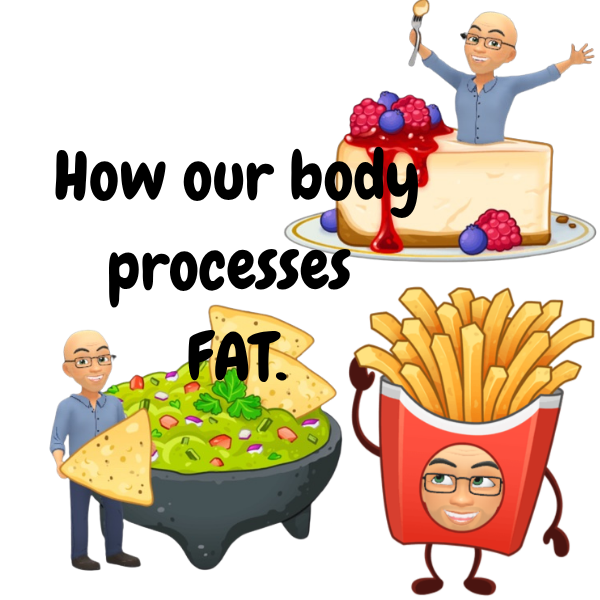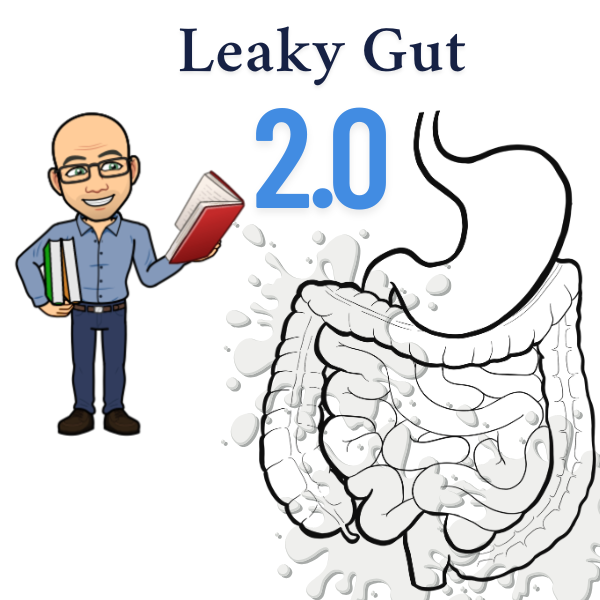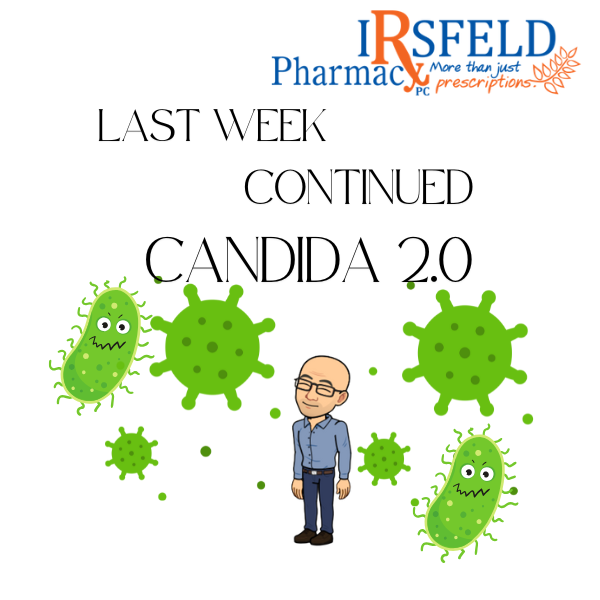Research is providing alternative therapies

Last week’s article discussed the possible lifestyle options that could be incorporated into your daily living to help decrease the risk of dementia or cognitive decline. This week I will explain in more detail, two possible mechanisms for cognitive decline and solutions for each of those mechanisms.
Cognitive decline, which refers to the gradual loss of thinking and memory skills, is a common issue as people age. It can also be seen in diseases like Alzheimer's. One important factor that contributes to cognitive decline is neuroinflammation, which is inflammation in the brain.
Neuroinflammation occurs when the brain's immune system is activated. This immune response is mainly carried out by a cell called microglia. Normally, this type of cell helps keep the brain healthy by fighting off infections and clearing away debris. However, when these cells become overactive, they can cause problems.
In an overactive state, microglia release chemicals called cytokines and reactive oxygen species. These chemicals are meant to fight off invaders and repair damage, but too much of them can harm the brain. This is like how swelling around a cut can help heal, but too much swelling can be harmful. When the brain is constantly inflamed, it can lead to damage of neurons, the cells that send messages in the brain, and this damage can cause problems with memory and thinking.
As people age, the immune system can become less efficient and more prone to overreaction. This means that even small triggers can cause a big inflammatory response in the brain. In neurodegenerative diseases like Alzheimer's, this problem is even worse. For example, in Alzheimer's disease, abnormal proteins called amyloid-beta plaques build up in the brain. These plaques can trigger microglia to become overactive and start a strong inflammatory response. Instead of protecting the brain, this chronic inflammation leads to further damage.
Finding ways to reduce neuroinflammation and, in turn, slow down cognitive decline should be one of the goals to future research. Some studies suggest that anti-inflammatory drugs or certain lifestyle changes, like a healthy diet and regular exercise, might help. These interventions could potentially calm the brain's immune response and protect neurons from damage.
One of the compounded medications we make at Irsfeld Pharmacy is a product called low dose naltrexone or LDN. LDN has several mechanisms of action with one of those mechanisms being the blocking of toll-like receptor 4 or TLR4. When TLR4 is activated or turned on, it triggers microglia to activate and creates neuroinflammation as described above. By blocking TLR4 we can positively affect the immune response in the brain.
Another key factor contributing to cognitive decline is mitochondrial dysfunction, which involves problems with the tiny powerhouses inside our cells called mitochondria. Mitochondria are essential for producing energy that cells need to function. They convert nutrients from the food we eat into a molecule called ATP (adenosine triphosphate), which cells use as fuel. In brain cells, which require a lot of energy to process information and maintain connections, mitochondria are especially important. When mitochondria don’t work properly, brain cells can't produce enough energy, leading to cognitive problems.
As people age, mitochondrial function can decline. This can be due to a variety of factors, including genetic mutations, oxidative stress, and exposure to environmental toxins. Oxidative stress occurs when there are too many free radicals—unstable molecules that can damage cells—and not enough antioxidants to neutralize them. Mitochondria are both a source and target of these free radicals, creating a vicious cycle where damaged mitochondria produce more free radicals, causing further damage.
In diseases like Alzheimer’s, mitochondrial dysfunction is even more pronounced. Abnormal proteins, such as amyloid-beta and tau, accumulate in the brain and can directly harm mitochondria. This damage impairs the mitochondria’s ability to produce energy efficiently. Moreover, dysfunctional mitochondria release more free radicals and trigger cell death pathways, contributing to the loss of brain cells and connections critical for memory and thinking.
The relationship between mitochondrial dysfunction and cognitive decline is complex. When mitochondria can’t produce enough energy, neurons (brain cells) can’t function properly, leading to symptoms like memory loss, confusion, and difficulty concentrating. Additionally, energy deficits can impair the brain’s ability to repair itself and form new connections, further exacerbating cognitive decline.
Some of the strategies used to improve mitochondrial function to combat cognitive decline, include antioxidants that can reduce oxidative stress, lifestyle changes like the ones discussed last week including a healthy diet and regular exercise that support mitochondrial health. Nutrients like Coenzyme Q10 and omega-3 fatty acids have been shown to support mitochondrial health and may help improve cognitive function.
The Irsfeld Pharmacy lab team has been working on formulations that include methylene blue, a dye that is use in certain medical procedures but also to dye blue jeans. You may be asking yourself, “how is that doing to help my memory?”
For over 120 years, methylene blue has been studied in the prevention of cancer, heart disease, and other a variety of other diseases. Recently studies have shown it to be useful in improving mitochondrial function. Its therapeutic diversity and minimal side effects make it a desirable option to explore.
Studies have found that methylene blue can help reroute electrons in the mitochondria to enhance metabolic functions, reduce oxidative stress, and limit cell damage. Methylene blue has in turn been explored as a therapeutic option for systemic aging that involves a variety of tissues in the body, including the brain and skin.
We are in the infancy of compounding this medication and only have a handful of patients utilizing it at this point, however we are seeing some interesting initial results. One of our patients was having difficulty recalling words. He knew what he wanted to say but could not come up with the word. In only a week of titration, he appears to have less difficulty recalling words and has been excited about the response to the medication.
I have spoken previously about having tools to best help our patients. In the case of cognitive decline, we rely on dietary supplements and compounded medications, like the ones talked about in this article, to better help patients with cognitive concerns. It has been a pleasure working with like-minded prescribers who are open to some of the non-conventional treatment options that we have to offer. I hope this was informative and helpful as you continue on your personal health journey.
My staff and I would like to help you with questions regarding dementia and the potential treatment options. Please visit my website at www.irsfeldpharmacy.com to view this and other health-related articles in the blog section.
Until next time, be vigilant about your health!!












Share On: